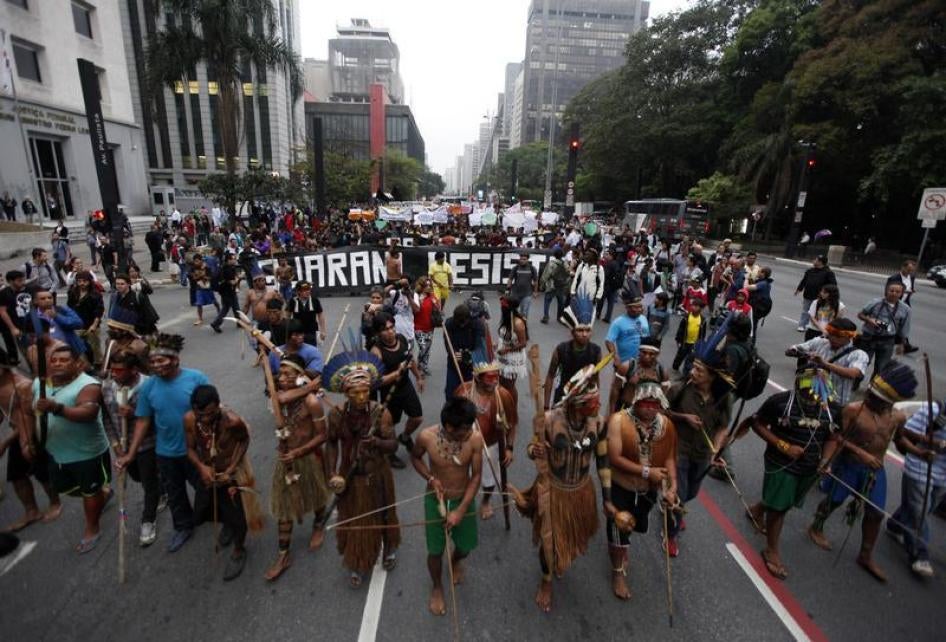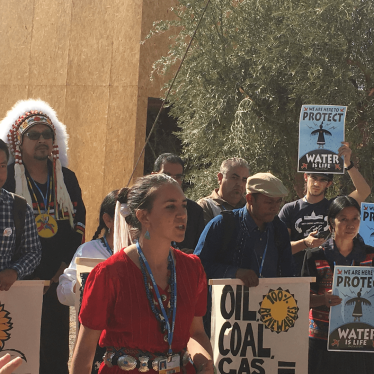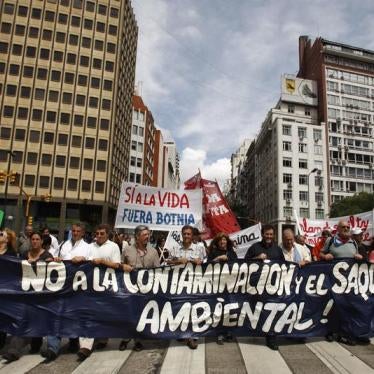Today not only marks the start of the 2017 climate change talks, but also the end of a long journey for a group of indigenous leaders who have been crisscrossing Europe for weeks drumming up support for indigenous forest defenders.
The Guardians of the Forest campaign has been hammering home a key point: One of the best ways to combat climate change is to support the world’s indigenous peoples and local communities in their efforts to protect forests.
A sobering new report published last week by the United Nations Environment Programme pointed out that stopping deforestation is crucial to reducing greenhouse gas emissions. Indigenous peoples and local communities are a critical part of such a strategy, since emissions and deforestation rates tend to be lower in forests managed by indigenous peoples when land rights are protected.
From the Amazon Basin to Standing Rock to the rainforests of Indonesia and the Congo, indigenous peoples are defending their communities and forests from logging, oil pipelines, and coal mining. Just take the efforts by the Guajajara, Ka’apor, and Gavião to protect the Amazon rainforest in the Brazilian state of Maranhão as examples.
Having stewarded the environment and lived sustainably for generations, indigenous peoples can guide others toward a low-carbon future. But so far, the wealth of knowledge they have to offer has only been cursorily included in the climate negotiations, and discussions of the rights of indigenous peoples have been sidelined. Only 21 of the 188 countries that signed the Paris Climate Accord have involved indigenous peoples and local communities in their national plans to reduce climate change.
At this year’s climate conference in Bonn, negotiators will flesh out details for a new platform to better incorporate indigenous and local communities in the international climate process. If successful, this would be an important step.
But the reality is that indigenous peoples urgently need better rights protections. Their land rights are frequently encroached upon because of a lack of formal land title or otherwise insecure land tenure, which has a disproportionate impact on indigenous women. And many are threatened, harassed, attacked, or even killed for their environmental activism. A UN expert raised alarm last year when he noted an increase in attacks against environmental rights defenders, many of them indigenous peoples, and little to no action is taken by local authorities to hold perpetrators accountable.
Protecting indigenous defenders is crucial to protecting the environment. So, if delegates at this year’s climate negotiations are serious about fighting climate change, they need to improve protections for the guardians of the forests.









